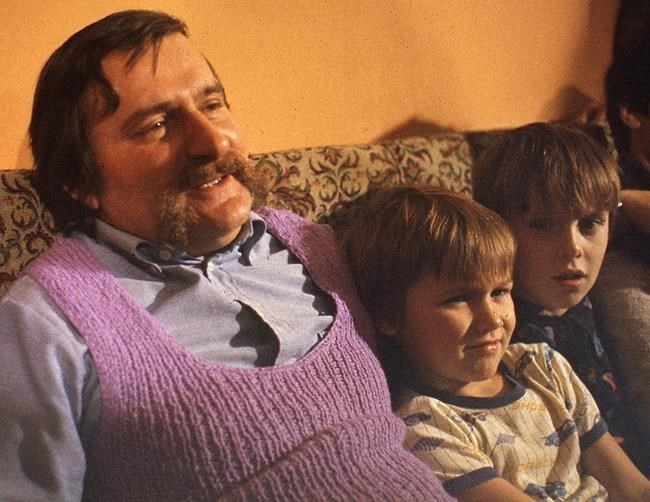
FILE - The Nov. 16 1982 file photo shows former Solidarity leader Lech Walesa with two of his eight children, including Przemyslaw, far right. On Friday the Walesa family buried Przemyslaw, who was found dead last Sunday in his home at the age of 43. Investigators ruled out foul play or suicide. Though the exact cause of death was not given, Przemyslaw had struggled with alcoholism. (AP Photo)
Republished January 13, 2017 - 6:07 AM
Original Publication Date January 13, 2017 - 3:35 AM
WARSAW, Poland - Former Polish President Lech Walesa attended the funeral Friday of a son who died at the age of 43 after struggling with alcoholism.
The Walesa family held a private funeral for Przemyslaw Walesa in their home city of Gdansk. He was third-born of Lech Walesa and wife Danuta's eight children — four sons and four daughters.
There was no television coverage of the funeral, but the Super Express tabloid reported on its website that the body was cremated and taken in an urn to a local cemetery for interment, the mourners travelling there in a snowstorm.
Przemyslaw Walesa was discovered dead in his Gdansk home on Sunday by a family member. Investigators ruled out foul play or suicide, but gave no exact cause of death.
He was known to have struggled with alcohol. In 1993, he caused a car accident while under the influence of alcohol. In 2003, he was in another crash while under the influence of alcohol and was given a one-year suspended sentence.
He left behind two teenage sons of his own.
Lech Walesa has remained silent about his grief in past days but on Friday issued a brief statement on Facebook saying, "Thank you to all you have shared their sorrow with us in this very difficult time for us."
Walesa, 73, won the Nobel Peace Prize in 1983 for his role in leading the nationwide Solidarity freedom movement. He was Poland's first popularly elected president, serving one term, from 1990-95, before being defeated by a former communist.
The family tragedy strikes the democracy icon at a difficult time — as a new political leadership in Poland questions his historic legacy and, in his eyes, unravels some of the democratic achievements for which he fought.
He has struggled with allegations that he served as an informer for the communist-era secret police in the 1970s, something he fiercely denies.
News from © The Associated Press, 2017